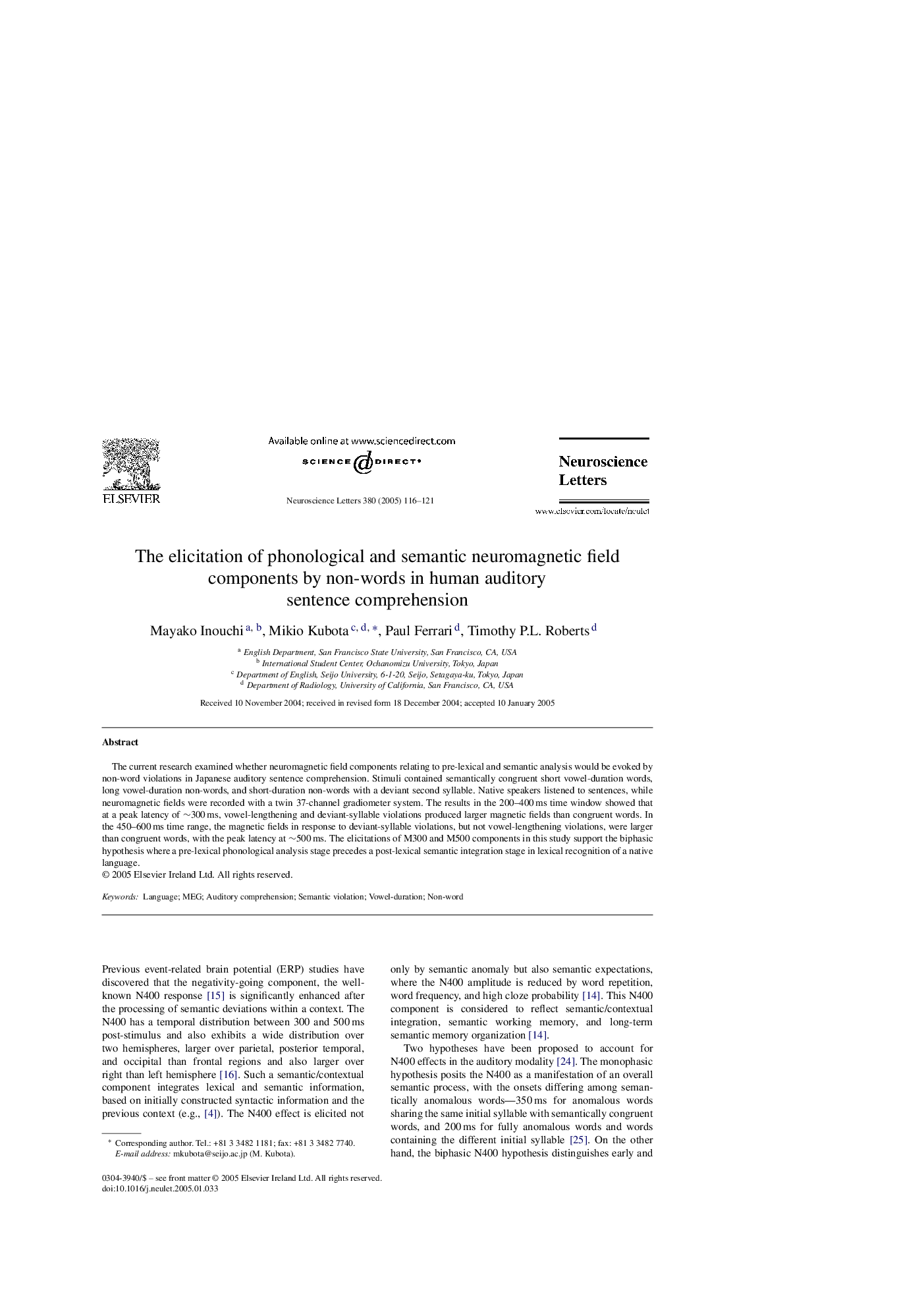| Article ID | Journal | Published Year | Pages | File Type |
|---|---|---|---|---|
| 9429441 | Neuroscience Letters | 2005 | 6 Pages |
Abstract
The current research examined whether neuromagnetic field components relating to pre-lexical and semantic analysis would be evoked by non-word violations in Japanese auditory sentence comprehension. Stimuli contained semantically congruent short vowel-duration words, long vowel-duration non-words, and short-duration non-words with a deviant second syllable. Native speakers listened to sentences, while neuromagnetic fields were recorded with a twin 37-channel gradiometer system. The results in the 200-400Â ms time window showed that at a peak latency of â¼300Â ms, vowel-lengthening and deviant-syllable violations produced larger magnetic fields than congruent words. In the 450-600Â ms time range, the magnetic fields in response to deviant-syllable violations, but not vowel-lengthening violations, were larger than congruent words, with the peak latency at â¼500Â ms. The elicitations of M300 and M500 components in this study support the biphasic hypothesis where a pre-lexical phonological analysis stage precedes a post-lexical semantic integration stage in lexical recognition of a native language.
Keywords
Related Topics
Life Sciences
Neuroscience
Neuroscience (General)
Authors
Mayako Inouchi, Mikio Kubota, Paul Ferrari, Timothy P.L. Roberts,
